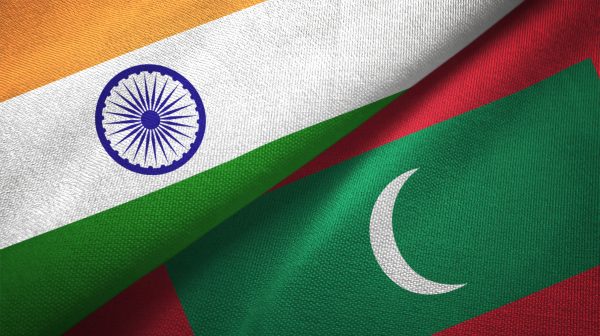- The Maldives, a country noted for its maritime beauty, has recently made political headlines.
- The strained diplomatic relations with India are at the heart of these developments, after undiplomatic statements by members of Muizzu’s government against the Indian Prime Minister and Indians in general.
- As a result of this circumstance, the Maldives’ foreign policy and ties with regional countries, notably India and China, have undergone considerable changes.
- The recent diplomatic fallout was precipitated by insulting statements made by Maldivian politicians towards Prime Minister Narendra Modi and Indians.
- The Maldivian government responded by removing the three ministers implicated.
- In India, there is a rising push to boycott the Maldives as a tourist destination and instead boost Lakshadweep tourism.
The Most Important Issues in the Maldives-India Relationship
Decadal Bonds
- The diplomatic and political alliance established over six decades is under threat.
- India’s historical links with the Maldives extend back to 1965, following British sovereignty, and include significant relationships in a variety of areas.
What is India’s need for the Maldives?
- Strategic Location: Because of its proximity to India’s west coast and its location in major water lanes, the Maldives is strategically essential for maritime security.
- Defence Training: With attempts to improve marine strength, India has been a big donor to the Maldives’ defence training.
- China’s Influence: India is concerned about the expanding Chinese involvement in the Maldives, particularly under President Xi Jinping’s Belt and Road Initiative.
Why do the Maldives require India?
- India is an important source of food, medicine, and construction materials to the Maldives.
- Education: India provides primary education to Maldivian youngsters.
- Economic Dependence: India is a major economic partner for the Maldives, with large exports to the island country.
- Disaster Relief: India has historically been the first responder to Maldives emergencies, such as the 2004 tsunami and the 2014 water crisis.
Political Transitions in the Maldives
- Muizzu’s Ascension to Power: Mohamed Muizzu, a former minister in Yameen’s ministry, won the presidential election on the promise of diminishing Indian influence.
- international Policy Shifts: President Muizzu’s first official visit was to Turkiye, breaking with convention, and he has subsequently visited China, signalling a shift in international relations.
- Military Presence and Agreements: The Muizzu administration has asked India to withdraw its military troops and has annulled a crucial agreement with India for conducting hydrographic studies in Maldivian seas.
Tensions and Recent Developments
- Muizzu’s demand on the removal of Indian military forces has been a source of controversy.
- Defence Connections: The lack of a Maldivian delegate at the Colombo Security Conclave, as well as the cancellation of a vital water survey accord with India, indicate a deterioration in defence relations.
- China’s Role: The Muizzu administration’s choices appear to be in line with a deeper connection with Beijing, which might benefit China’s maritime surveys in the region.
@the end
- The Maldives’ recent political events under President Mohamed Muizzu represent a dramatic shift in the island nation’s foreign policy, notably in its relations with India.
- Domestic politics and China’s expanding power have affected these shifts, which have ramifications for regional security and diplomacy.
- It remains to be seen how these changes will affect the Maldives’ foreign relations and its position in the crucial Indian Ocean area as the situation progresses.
Source: https://www.thehindu.com/news/national/india-maldives-diplomatic-tensions-controversies-recent-explainer-muizzu-modi/article67722833.ece#:~:text=Aiming%20to%20reset%20ties%20with,Hindu%20in%20a%202021%20interview.

